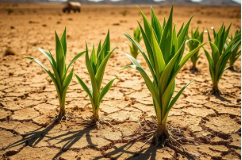
In a strong signal of rising investment in the agricultural sector, farm credit disbursement in Bangladesh surged by 28.9% year-on-year in May 2025, according to the latest data from the Bangladesh Bank. The country’s farmers received BDT 33.84 billion in agricultural loans during the month, compared to BDT 26.26 billion in May 2024.
The sharp increase reflects growing demand for agricultural financing, fueled by higher production costs, seasonal farming activities, and an expansion of government-supported lending programs targeting rural economies.
According to officials at Bangladesh Bank, the spike in disbursement was partly driven by favorable policies and increased collaboration with state-owned and private commercial banks, which were urged to step up agricultural lending in line with national food security goals.
Between July 2024 and May 2025 the first 11 months of the ongoing fiscal year banks distributed a total of BDT 332.06 billion in farm loans, representing 89.7% of the annual target of BDT 370.75 billion. This marks a healthy pace of credit delivery, especially as the fiscal year nears its close at the end of June.
Sector experts say the increased flow of funds is helping to modernize farm operations, finance the purchase of inputs like seeds and fertilizers, and support irrigation and mechanization. It is also providing critical support for small and marginal farmers who often rely on seasonal loans to sustain their livelihoods.
“The rise in farm credit indicates positive momentum in rural financing, which is vital for boosting agricultural productivity and food security,” said Professor Rezaul Karim, an agricultural economist at the University of Dhaka. “However, it’s important that this credit reaches the most vulnerable farmers, not just commercial agribusinesses.”
State-run banks, such as Sonali Bank and Agrani Bank, played a major role in achieving the credit growth, while private banks also showed strong performance in disbursing loans through rural branches and mobile banking platforms.
Bangladesh Bank has recently taken steps to ensure more inclusive and timely delivery of farm credit, including simplified loan application processes, digital monitoring tools, and region-specific targets for agricultural lending.
The central bank also emphasized the importance of maintaining low default rates and closely monitoring how funds are being utilized on the ground.
With agricultural output playing a key role in the country’s economy and employment, experts believe that continued focus on affordable credit, capacity building, and climate-resilient farming will be essential to sustaining growth in the sector.














